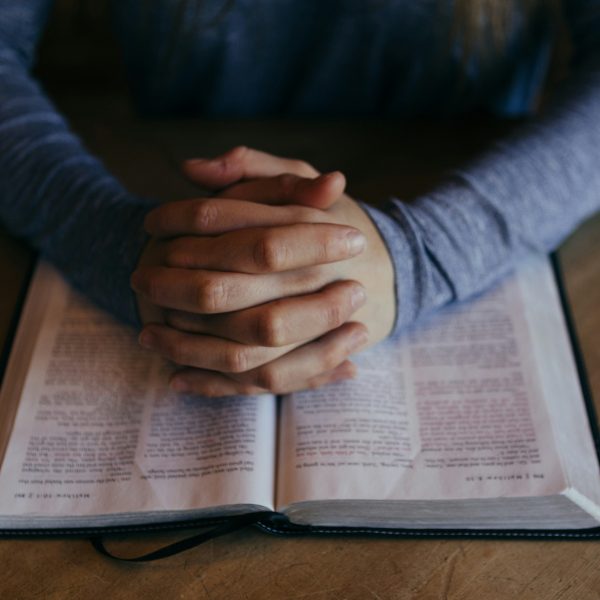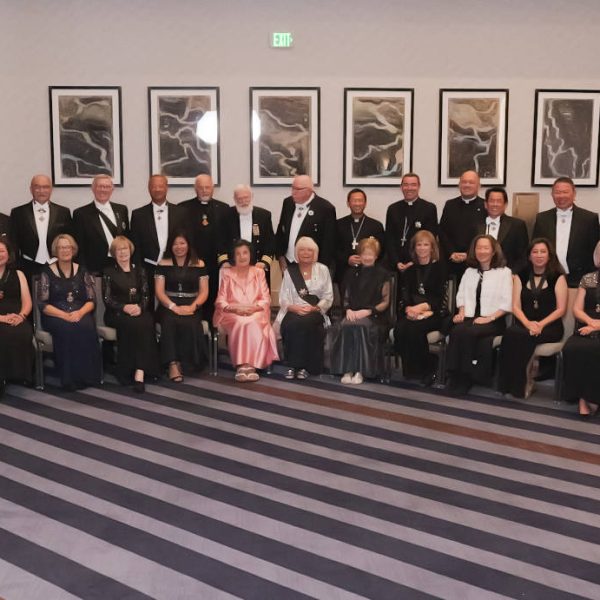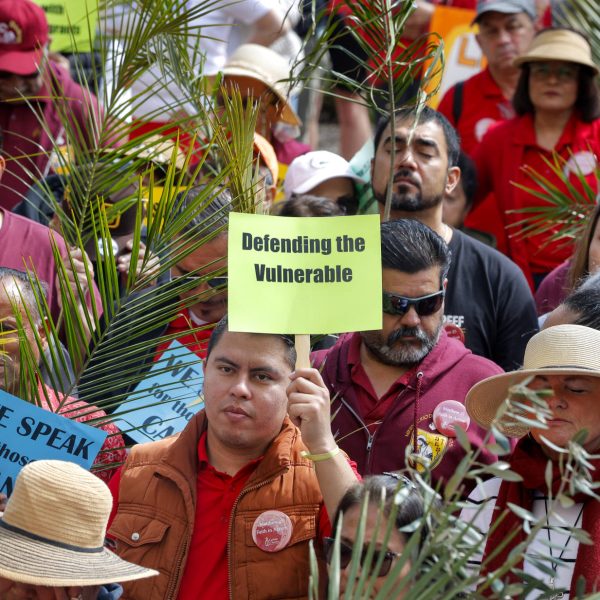SAN DIEGO — Bishop Siby Peedikayil, of the Diocese of Aitape, Papua New Guinea, was born into a “strong, traditional Catholic family” in Kerala, India.
“It was my childhood desire (to become a priest),” he said, “and that desire never disappeared.”
In 1986, he joined the Heralds of Good News, a missionary society of apostolic life whose charism is training priests to serve where there is a shortage of vocations. He was ordained to the priesthood in 1995.
Toward the end of his seminary studies, he answered the call to serve as a missionary in the Diocese of Vanimo, Papua New Guinea.
He recalled that the bishop of Vanimo didn’t sugarcoat the challenges involved in that ministry, not neglecting to acknowledge that the absence of “many roads and such conveniences” meant that missionaries would need “to be ready to walk a lot.”
“When I heard all this,” said Bishop Peedikayil, “I thought maybe that is a place I must go.”
He explained that he had been born with a cleft foot, which was healed during his early years. Being invited to serve in a place that required much walking seemed providential.
“I thought I must use my legs in order to walk and work for the Lord,” he said.
In 2021, Pope Francis appointed him to lead the Diocese of Aitape.
“Papua New Guinea … has over 600 islands and over 800 languages,” said Bishop Peedikayil, “and it is a Christian country.”
Aitape is one of 19 Catholic dioceses in Papua New Guinea. Evangelization efforts began in the area in 1896, and today about 75% of its population is Catholic.
“The people are strong in their faith, and they are very caring, loving and compassionate towards one another,” Bishop Peedikayil said.
However, life is challenging, and the diocese has pressing needs.
Bishop Peedikayil said that the diocese, which includes 32 parishes and more than 200 chapels, is located in “one of the remote and underdeveloped regions of the country,” where most of the locals are subsistence farmers.
He said that resources and infrastructure are limited, with most of the people lacking access to electricity, running water, refrigeration and good roads.
Bishop Peedikayil visited parishes in the Diocese of San Diego over the summer, making an appeal for financial assistance.
Among others things, donations from U.S. Catholics will help fund the diocese’s operating expenses.
“Most of our churches, and chapels, and rectories, and schools … are dilapidated,” he said. “Many of them need rebuilding or maintenance.”
He said that increasing the number of priests is also of utmost importance.
Currently, he said, there are only 19 priests ministering to a Catholic population of 160,000.
“One of the urgent needs is to get more missionaries to give Jesus to the people, to keep the work of evangelization going,” he said. “But, in the long run, the future of … the local Church of Aitape depends on local priests.”
Bishop Peedikayil said that funds also are needed for the diocese’s Catholic schools and to build a rehabilitation center for destitute psychiatric patients.
“We are all invited to participate in the work of evangelization,” he said. “First of all, to bear witness to Christ and share the gift of faith that God has given us within our own family and our own parish. But also, we are invited to be concerned about the needs of the Church, (the) needs of our brothers and sisters around the world.”





